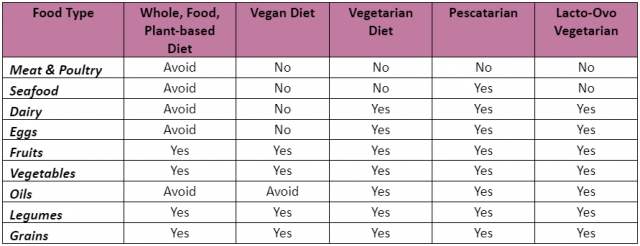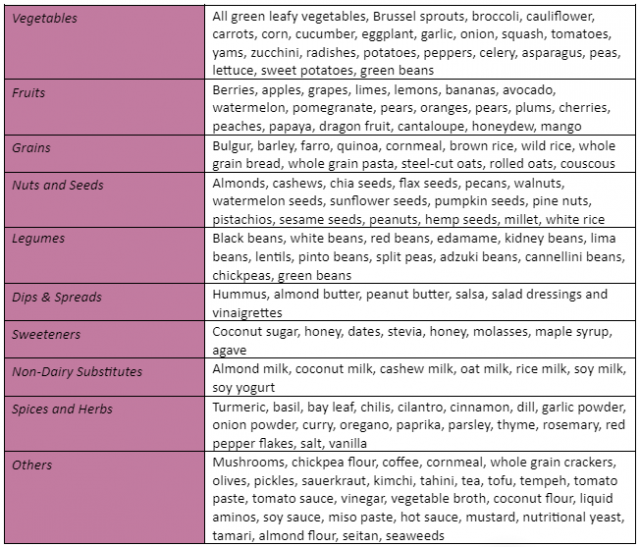
The plant-based nutrition revolution is here and has been rapidly growing in popularity for some time. And it’s for a good reason. Going plant-based is an excellent and easy way to improve your overall health. This article will help you understand what a plant-based diet is all about, how it benefits your health, and how you can start this diet.
Plant-Based Diet Facts You Need to Know
Plant-based nutrition emphasizes the consumption of whole grains, fruits, vegetables, legumes, nuts, and seeds with a limited intake of highly processed foods. These foods are nutrient-dense, meaning they are high in nutrients and low in calories. They are packed with antioxidants, minerals, vitamins, and phytonutrients, all essential to good health. In addition, they are rich in fiber, so they keep you full and your digestive system in check.
There is a common misconception that plant-based diets exclude all animal products. However, plant-based nutrition is not synonymous with being vegetarian or vegan. In fact, plant-based diets are the basis for many other healthy eating plans, and you can adapt to a plant-based diet in many different ways. The only difference is that animal products are consumed less frequently, and their proportions are smaller. The following are various ways to go about it.

Rather than going cold turkey on the meat or carbs you love, cut back on them gradually. Learn how to adapt to plant-based nutrition in a sustainable way with these tips.
- Try to eat meatless once a week with Meatless Mondays.
- Buy a good cookbook on plant-based recipes. Plenty of delicious meatless recipes (including vegetarian and vegan recipes) can help you make the transition to meat-free eating easier.
- Experiment with herbs, spices, sauces, and marinades.
- Swap out one ingredient at a time (example: swap quinoa for rice).
- Try meat substitutes like Impossible Meat, seitan, etc.
- Use healthier cooking methods like steaming and baking instead of frying.
Why You Should Make the Switch to a Plant-Based Diet
Several leading health organizations, such as the World Health Organization, highlight the health benefits of plant-based foods and warn against high consumption of red and processed meat, sugar, saturated fat, and highly refined foods.
The benefits of plant-based food are numerous, ranging from its ability to eliminate or reduce the risk of chronic diseases to its incredible capacity to impact the environment positively. Here are the many benefits of plant-based nutrition.
Better Heart Health
Switching to a plant-based diet is proven effective in managing chronic illnesses and increasing life expectancy. When eaten as part of a balanced diet, plant-based foods have many nutrients, vitamins, and minerals, such as dietary fiber, potassium, calcium, and unsaturated fatty acids, which can help lower blood pressure, prevent stroke, and reduce cholesterol levels.
Helps in Weight Loss
The consumption of more vegetables and fruits can promote weight loss or weight stability in the long run. This is due to the fiber in fruits and vegetables which helps you feel full faster. Other than that, plant-based foods are also low in fat and calorie content.
Improves Gut Health
By eating a diverse range of plant foods, we encourage different types of good bacteria to thrive in our gut. Plant-based diets generally contain more fiber and antioxidants, two essential nutrients that support gut health. The bacteria in the gut ferment fiber and produce short-chain fatty acids that have been shown to boost our immune system as well.
Prevents Inflammation
Many health problems have connections to inflammation, such as heart disease, cancer, and chronic inflammatory conditions. Several studies have shown that fruits, vegetables, and whole grains can reduce inflammation by boosting your immune system. Furthermore, plant-based foods contain phytonutrients that can neutralize free radicals, responsible for DNA damage and inflammation.
Reduces the Risk of Cancer and Renal Diseases
Several studies have linked plant-based foods with lower cancer and kidney disease rates, partly because they produce anti-inflammatory phytochemicals and higher levels of nutrient absorption.
Maintains Healthy Blood Glucose Levels
Dietary fiber found in plant foods stabilizes blood glucose levels and reduces serum cholesterol and triglyceride levels, thus lowering the risk of Type 2 diabetes and cardiovascular disease risk.
Gives You More Energy
You can boost your energy levels by eating a lot of plant-based foods. By combining more nourishing carbs, vitamins, minerals, and antioxidants with reduced saturated fat and animal protein, individuals will feel more energetic, lighter, and in a good mood. Furthermore, plant-based foods such as kale and bananas contain nutrients that improve melatonin levels resulting in better sleep. This, in turn, leads to greater energy levels.
Promotes Healthy Brain Function
The consumption of plant-based diets is associated with improved cognitive function, reduced risk of Alzheimer’s disease, and decreased psychological distress. Moreover, researchers have also found a link between plant-based diets and lower levels of stress, anxiety, and depression.
Plant-based Diet is Good for the Planet
One more reason people limit meat in their diet is its environmental impact. The meat industry has a global impact on water, soils, the extinction of plants and animals, and global warming. People can reduce these adverse effects by consuming more plant-based foods.
The Best Plant-Based Food List: What Can I Eat?
If you are curious about going plant-based or want to try it out as an experiment, you may be confused by all the foods you can and cannot eat. We’ve put together a list of the different types of plant-based foods you can choose from so you can start on your journey without the hassle.

Make the Switch to a Plant-Based Nutrition
Increasing the variety of plant-based foods we grow and consume can improve our health and ensure a stable food supply for future generations. At PHWC, we believe there is no one-size-fits-all solution to healthy living. It is imperative to customize an eating plan tailored to a person’s specific health needs. Consult with one of our healthcare providers before starting a new diet plan, particularly if you have underlying health problems. Call 441-292-5111 or make an appointment online today.
